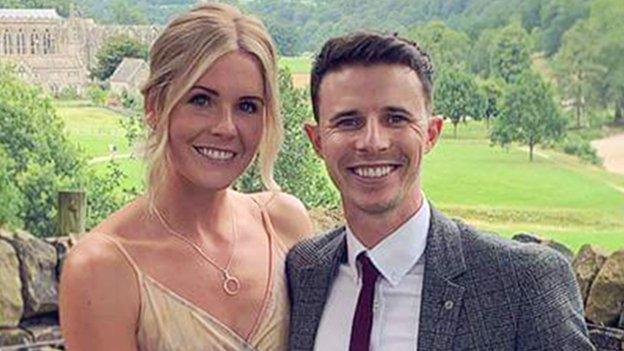Weddings: Call to allow ceremonies outdoors and at home
- Published
- comments
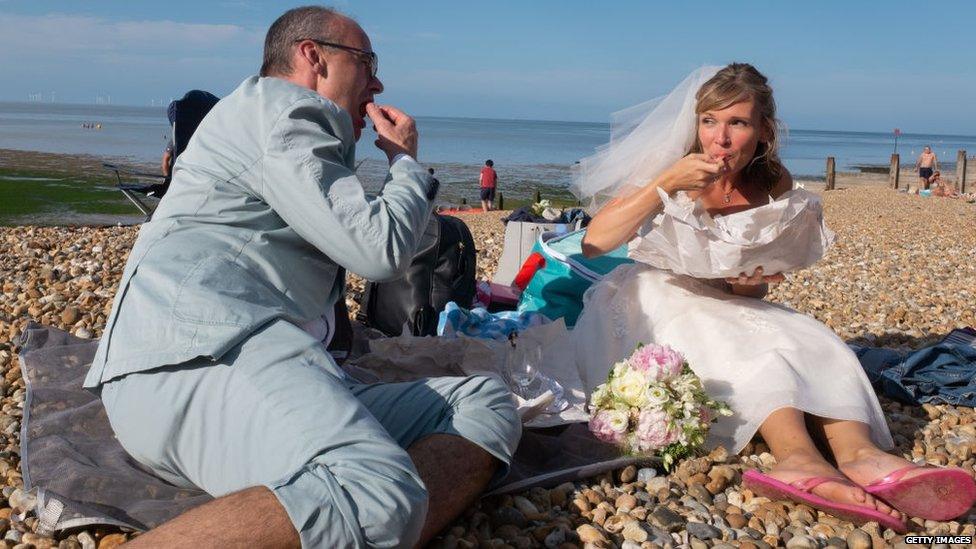
Proposals to allow couples in England and Wales to marry outdoors or inside family homes have been put forward.
The Law Commission says the regulations that govern weddings are "no longer meeting the needs of many couples".
It has proposed private gardens, beaches, parks and cruise ships as potential suitable venues.
Rather than force couples to choose between civil and religious marriages, it believes there should be scope for ceremonies reflecting other beliefs.
Professor Nick Hopkins, family law commissioner at the Law Commission, which reviews legislation, said wedding days were one of the most important events in people's lives but current laws were not fit for purpose.
"Our proposals would give couples the freedom to choose the wedding venue they want and a ceremony that is meaningful for them. By doing so, we hope to make the laws that govern weddings reflect the wishes and needs of today's society," he said.
A spokesman for the Church of England said it would study and respond to the proposals.
"Our research shows that being married in a place that has meaning is still important to couples and their families," they said.
"The moments of waiting to walk down the aisle, standing at the steps and exchanging timeless vows that can only be said in a church, and turning to walk out of the church as a newly-married couple, are cherished."
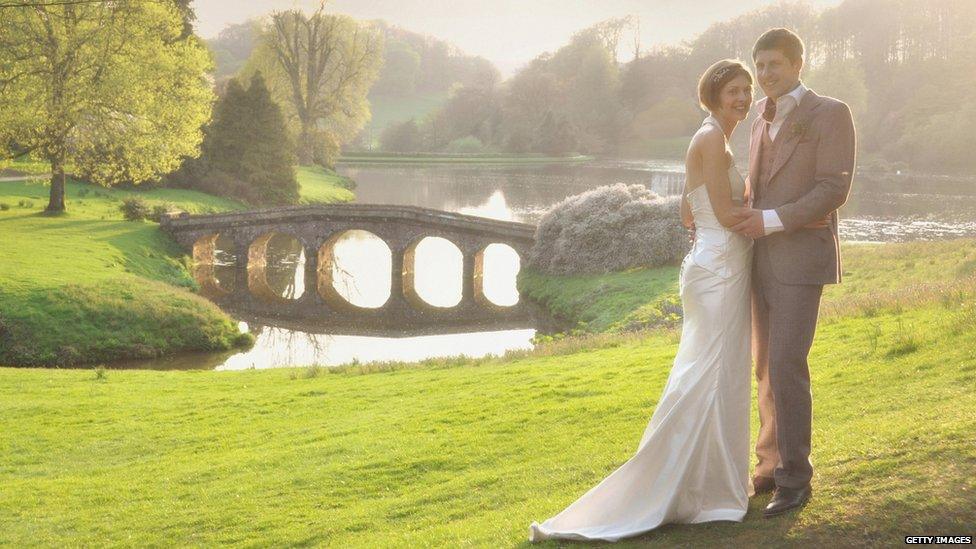
Gardens are among the suggested suitable wedding venues
What are the current rules?
In England and Wales state a wedding must be either a religious ceremony or a civil ceremony, external.
For religious weddings:
The ceremony must take place at a registered religious building
Same-sex couples can only be married in a building registered for the marriage of same-sex couples
An authorised person, such as a religious minister, must attend the ceremony and register the marriage.
For civil ceremonies:
The civil ceremony must take place a register office or a venue approved by the local council
Two witnesses must be present at the ceremony
A registrar must carry out, or be present at, your ceremony.
Civil ceremonies can include readings, songs or music, but must not include hymns or readings from religious scriptures.
The commission says wedding regulations are "out of kilter" with the more modern approach to weddings in Scotland, Ireland and the Channel Islands.
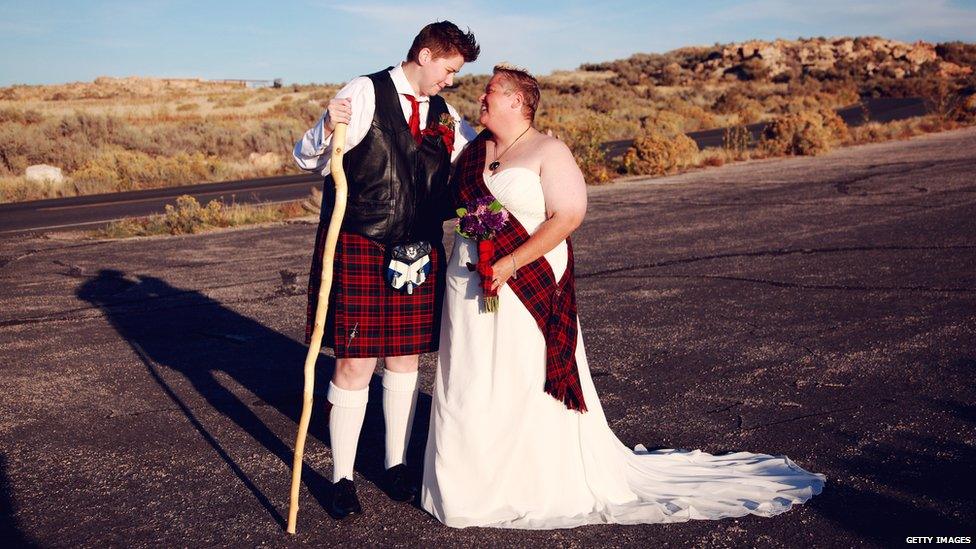
You can marry where you like in Scotland
Scottish weddings are not governed by location restrictions. It means couples have been married in isolated glens, on uninhabited islands and in ancient castles.
In addition, the Marriage (Scotland) Act 2002 stipulates marriages be conducted by any "authorised celebrants" - not necessarily a minister of religion or a registrar.
In Northern Ireland, where same sex religious marriages became lawful on Tuesday, there is no restriction on the location of a religious marriage. However, civil marriages can only take place in approved venues.
In England, the Marriage Act 1994 allowed civil marriages to be take place in certain "approved premises" other than churches and register offices.
This opened up hotels, theme parks and even Oxford Street's Virgin Megastore, external as official wedding venues.
What's proposed?
The Law Commission says planning and postponing weddings during the Covid-19 pandemic has highlighted the restrictions faced by couples in England and Wales.
It wants non-religious belief organisations, such as Humanists, to be able to conduct legally-binding weddings.
It also wants to allow weddings to take place remotely during any future national emergency, such as another pandemic. It says such changes would allow for "simpler, less expensive weddings".
The commission will consult on the proposals until 3 December and aims to publish a report before the end of 2021.
- Published28 August 2020

- Published14 July 2021
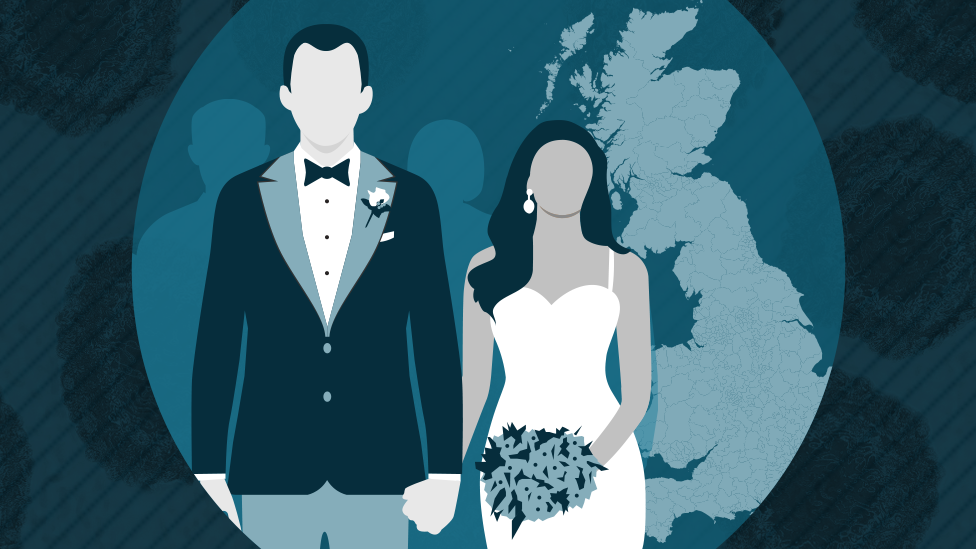
- Published19 July 2020
